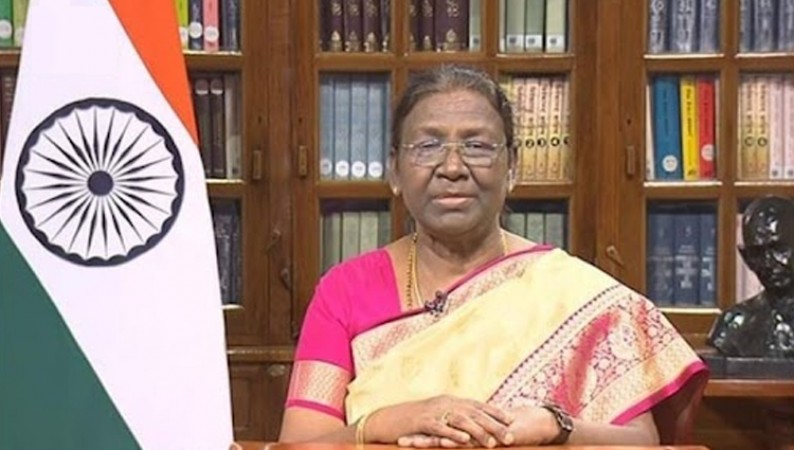
New Delhi: On Saturday, President Droupadi Murmu paid respect to all those who died in the Mumbai terror attacks of November 26.
The President said that the nation shares the ongoing suffering of their loved ones and families on the occasion of the 14th anniversary of the 26/11 Mumbai attacks.
"On the anniversary of the 26/11 Mumbai terror attacks, the nation recollects with gratitude all those we lost. We share the pain of their loved ones and families. The nation honours the security professionals who battled bravely and gave the ultimate sacrifice while performing their duties," the President said.
The 26/11 Mumbai terror attacks claimed the lives of at least 174 people, including 20 members of the security forces and 26 foreign nationals, and injured more than 300 others.
On November 26, 2011, 10 Lashkar-e-Taiba terrorists travelled by boat from Pakistan to Mumbai and launched a string of coordinated shooting and bombing operations throughout the city.
After sailing to the city under the cover of darkness, the terrorists targeted key landmarks of Mumbai with the first attack taking place at the busy Chhatrapati Shivaji Terminus (CST) railway station.
The attack at this station was carried out by Ajmal Amir Kasab and Ismail Khan, who may have killed 58 people and injured over 100 others.
Later, Kasab and Khan entered to attack Cama Hospital, but they were stopped by the staff's readiness. However, after leaving the hospital, they ambushed and killed 6 police officers, including Hemant Karkare of the city's Anti-Terrorism Squad.
The Rabbi, his wife, and six others, including five Israeli citizens, were killed by the terrorists who had originally taken them hostage at the business and residential complex known as Nariman House.
The Leopold Cafe, Taj Mahal Hotel, and Tower were the next targets of an attack on November 26. Before entering the prestigious Taj hotel, where they laid a three-day siege, four terrorists attacked the well-known cafe. There, they killed up to 31 people.
The Oberoi-Trident hotel was the secondary target of the 26/11 attack. A second group of two terrorists entered there at nearly the same time as the other four did at the Taj. The Oberoi-Trident hotel's siege came to an end on November 28 in the evening, with up to 30 people dying in the horrifying assault.
On November 29, 2008, after the National Security Guards (NSG) had surrounded the Taj Mahal Palace Hotel, the attack and seizure came to an end.
Over 160 people had already died and hundreds had been injured by the time National Security Guards (NSG) commandos killed the final terrorists who had taken refuge in the Taj Mahal Palace hotel in south Mumbai.
Following the attack, it was discovered that the ten terrorists had sailed from Karachi, the port city of Pakistan, to Mumbai. They used a fishing dingy to transport themselves to the Mumbai coast after stealing it and killing four of the five men who were on board.
Nine terrorists were dead in these horrifying attacks, while the lone survivor, Ajmal Amir Kasab, was apprehended and given a death sentence in 2012 at Pune's Yerwada Central Jail.